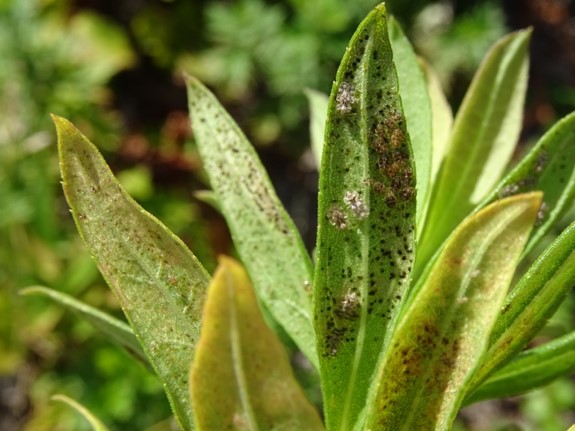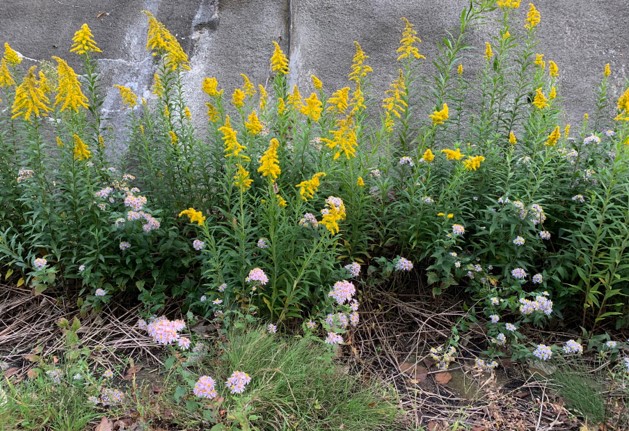An exotic herbivore reinforces competition between exotic and native plants
Akita Prefectural University press release.
Researchers have found tall goldenrod, an invasive species to Japan, has negative effects on native plants both through direct competition and indirect competition caused by an invasive herbivore, the lace bug. The findings published in Journal of Ecology suggest that exotic herbivores may reinforce the negative effects of exotic plants on native plants in high herbivore density environments.

Exotic plants can influence the growth and development of native plants not only through direct competition but also through indirect competition. One of the primary mechanisms by which exotic plants indirectly influence native plant performance is by altering herbivore damage. Such an indirect effect that occurs when one species negatively affects another via elevated consumer pressure is referred to as “apparent competition”.
The goal of the present study was to compare the direct and herbivore-mediated indirect effects of tall goldenrod, Solidago altissima (Asteraceae), on other co-occurring Asteraceae plant species interacting with different herbivorous insects, both in its native range in the US, and in its introduced range in Japan.
To measure these effects, we took advantage of the unintentional introduction of an herbivorous insect into Japan, the lace bug, Corythucha marmorata, which is native to the US. The lace bug feeds exclusively on Asteraceae in both the US and Japan. We evaluated the herbivore-mediated indirect effects of S. altissima on other co-occurring native Asteraceae species at multiple sites in a native range (US) and in an introduced range (Japan) using common garden experiments.

We observed increased lace bug herbivory in plants grown with S. altissima in Japan but decreased lace bug herbivory in the US. This contrasting pattern between Japan and the US can be explained by the difference in the lace bug density between the ranges. In Japan, lace bugs occur at two times the density compared to the US, which causes spill-over of the lace bugs from its preferred host S. altissima, to the co-occurring native asters.
In contrast, in the US, where lace bug densities are much lower, lace bugs are attracted to the preferred S. altissima and drawn away from the surrounding plants, with S. altissima acting as an “attractant-decoy plant”. We also found that the flower production decreased in asters grown with S. altissima in Japan because of direct competition and increased herbivory, but the direct competition was absent in the US.
These results suggest that direct competition and apparent competition via lace bug herbivory interacted to produce a strong negative effect of S. altissima on co-occurring plants only in the introduced range. Our results also indicate the need for caution when introducing herbivorous insects for biological control of exotic weeds. Introducing exotic herbivores can enhance rather than attenuate the invasiveness of exotic plants by reinforcing the adverse effects of exotic plants on native plants especially in environments with a high density of a common herbivore.
The evolutionary history and geographic differences in herbivory are critical in both direct and indirect plant competition. Our study has contributed to our understanding of how interactions between invasive species and local biotic communities shape plant competition.
You can read the article in full for free (for a limited time) here:
Exotic herbivore reinforces competition between exotic and native plants
https://besjournals.onlinelibrary.wiley.com/doi/full/10.1111/1365-2745.13686
Media contacts
Yuzu Sakata on +81 188721618 // sakata@akita-pu.ac.jp
Faculty of Bioresource Sciences, Akita Prefectural University
https://www.akita-pu.ac.jp/language/EN/
Tim Craig +1-2187268123 // tcraig@d.umn.edu
Department of Biology, University of Minnesota Duluth
https://scse.d.umn.edu/about/departments-and-programs/biology
Like what we stand for?
Support our mission and help develop the next generation of ecologists by donating to the British Ecological Society.